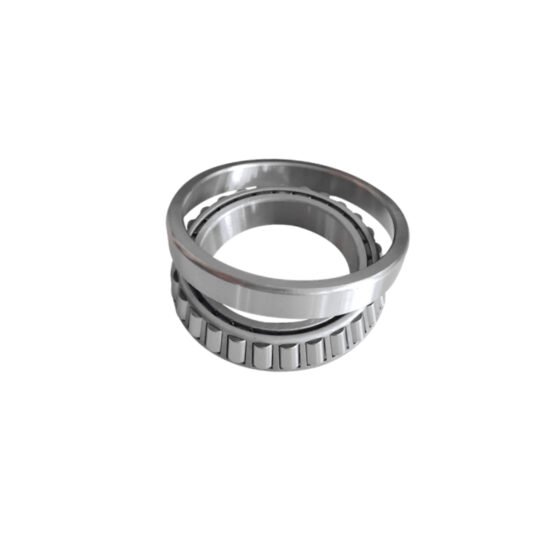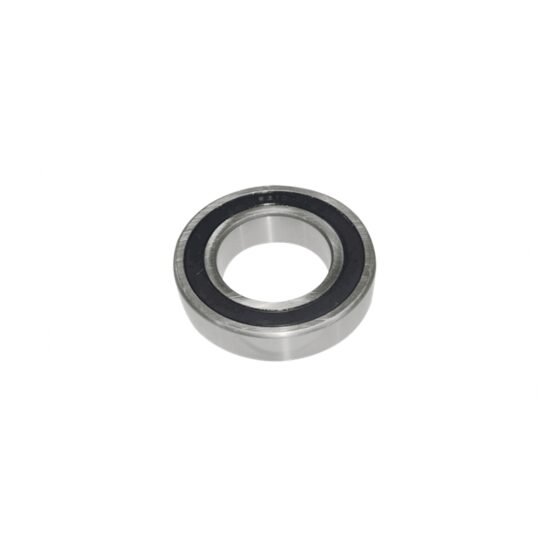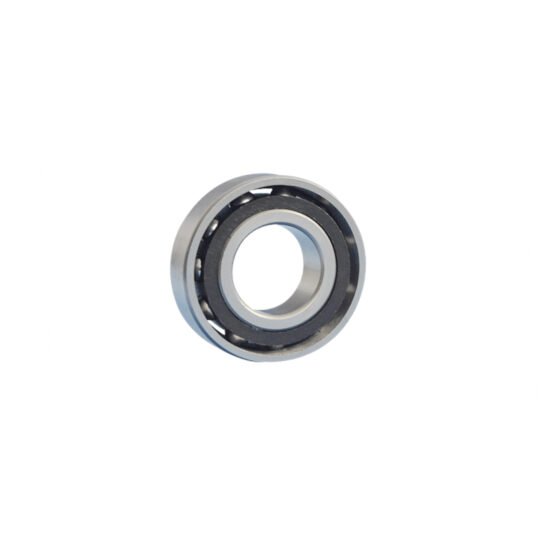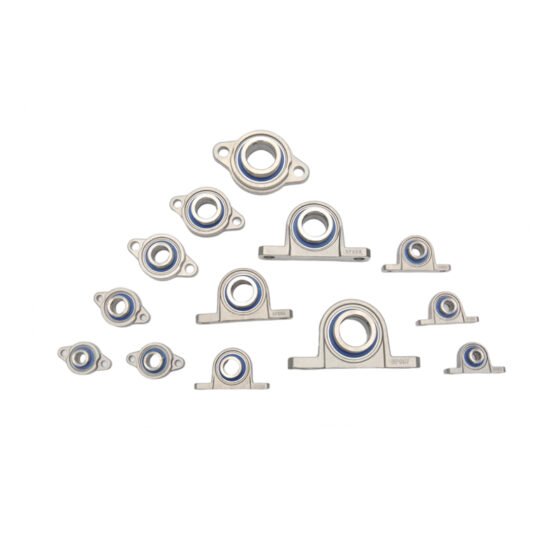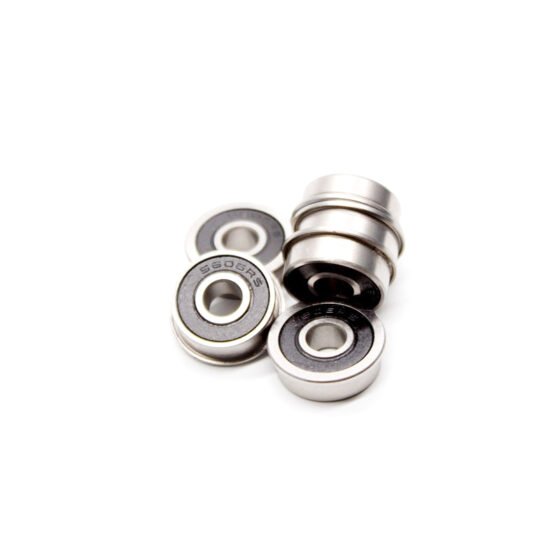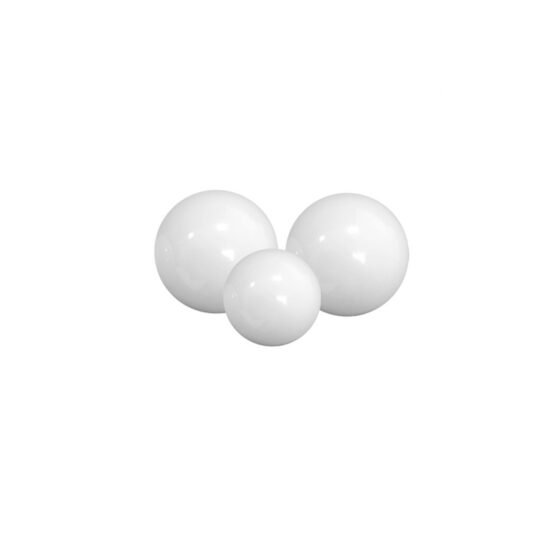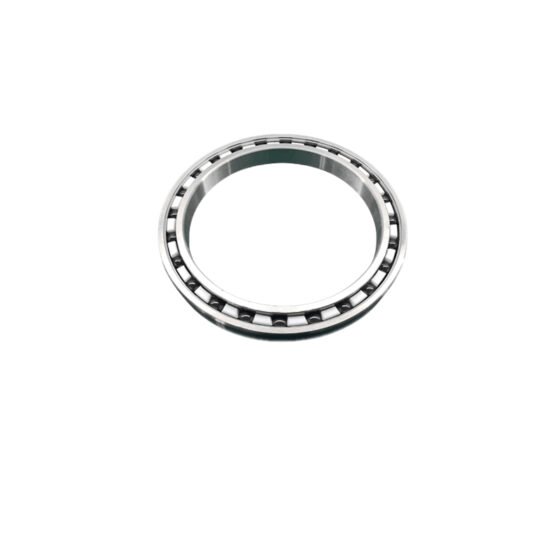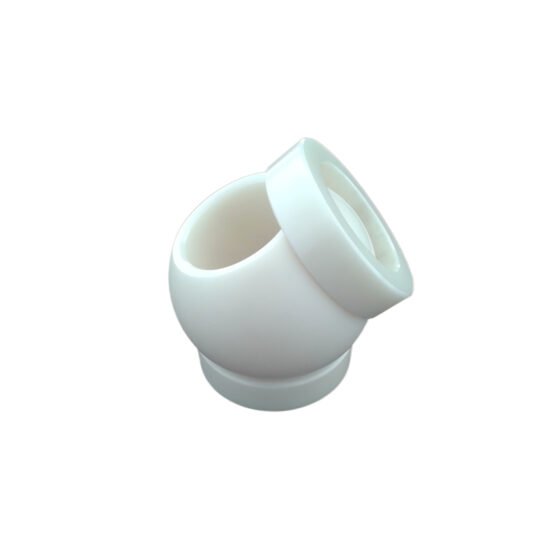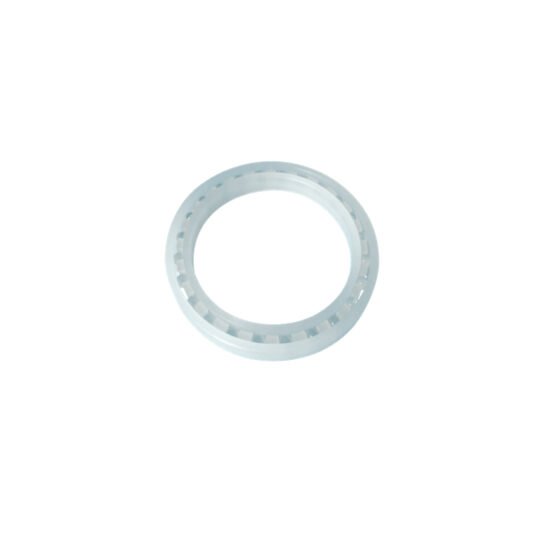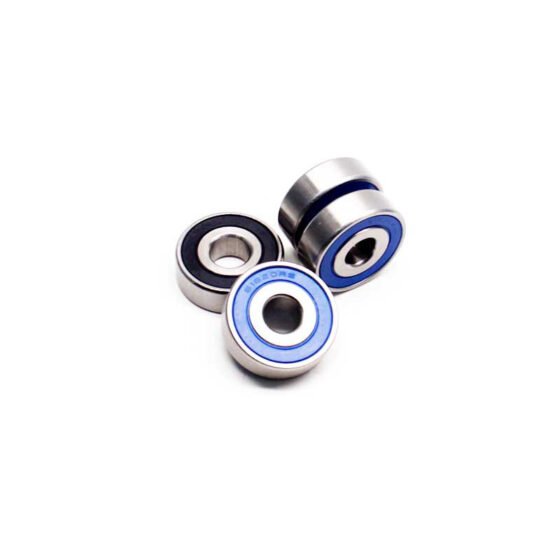The 304 Stainless Steel Insert Ball Bearing is designed for applications that require corrosion resistance and durable performance in harsh environments. Made from high-quality 304 stainless steel, these bearings offer excellent resistance to rust, corrosion, and oxidation, making them an ideal choice for industrial, agricultural, automotive, and food processing applications.
The insert ball bearing configuration features an insert that allows for easy mounting into a housing or support structure, providing additional support and alignment. The insert is typically designed to fit into a pillow block or flange housing, simplifying installation and maintenance. The insert ball bearing is commonly used where external conditions or potential contamination might require a more robust bearing design.
Key Features of 304 Stainless Steel Insert Ball Bearing
- Corrosion Resistance
- Made from 304 stainless steel, these insert ball bearings offer outstanding resistance to corrosion, making them suitable for use in moisture-rich environments, including food processing and marine applications.
- Ease of Installation
- The insert design allows for easy mounting into a housing or bracket. This simplifies installation and makes the bearing highly versatile for different machinery setups.
- High Load Capacity
- These bearings are designed to carry both radial and axial loads, offering high load-bearing capacity, which makes them ideal for heavy-duty applications.
- Durability and Longevity
- Built to withstand tough conditions, these bearings are designed for long-term performance and reliability, reducing maintenance requirements and downtime.
- Low Friction for Smooth Operation
- The ball bearing design provides low friction, ensuring smooth and efficient operation. This results in reduced heat generation, energy consumption, and extended bearing life.
- Versatility
- Available in different sizes and configurations, these insert ball bearings are suitable for a wide range of industrial applications, from machinery to automation systems.
Applications of 304 Stainless Steel Insert Ball Bearings
- Food and Beverage Industry
- These bearings are ideal for food processing and packaging equipment, where hygiene, resistance to contamination, and corrosion resistance are essential.
- Marine Applications
- Due to their excellent corrosion resistance, these bearings are perfect for use in marine environments, including in boat engines, winches, and water pumps.
- Automotive Industry
- Suitable for use in automotive components such as suspension systems, wheel hubs, and transmission systems, where durability and high load capacity are required.
- Agricultural Machinery
- Used in agricultural equipment such as tractors, harvesters, and irrigation systems, where reliable and durable performance is essential in challenging environments.
- Industrial Equipment
- These bearings are commonly used in machinery such as conveyors, mixers, and gearboxes, where high performance, resistance to contaminants, and low maintenance are required.
- Robotics and Automation
- The easy installation and secure mounting design make these bearings suitable for robotic systems and automated machinery that require precision and reliability.
Advantages of 304 Stainless Steel Insert Ball Bearings
- Corrosion Resistance: Ideal for use in moisture-laden environments, offering long-lasting performance and reducing the risk of bearing failure due to rust or corrosion.
- Ease of Installation: The insert design allows for quick and easy mounting, which reduces installation time and simplifies maintenance.
- High Performance: These bearings provide efficient and smooth operation with low friction, resulting in minimal energy loss and reduced wear.
- Durability: Designed for high-performance applications, these bearings are built to handle heavy loads, providing reliability and longevity in demanding environments.
- Versatile Applications: Suitable for a wide range of industries, including food processing, automotive, agriculture, and industrial machinery.
- Low Maintenance: Pre-lubricated or greased bearings reduce maintenance requirements, offering extended service life and reducing operational downtime.
 LOWIFAR CERAMIC
LOWIFAR CERAMIC




